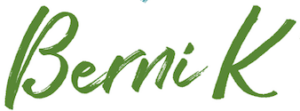
Why Not Slowing Down at Work is Bad for Your Career (And What to Do About It!)
by Berni Kozlowski
Sept 19, 2020
When you don’t slow down at work, do you feel frantic and exhausted instead of poised and energized? It gets tough after a while, leaving you wondering if it’s worth it to continually go at such a pace with no end in sight, right? You know that keeping this pace will lead to health issues, if you don’t already have them. You see your primary relationships suffering because you bring work frustrations home with you. All of this reduces your effectiveness and earning potential at work.
On top of all that, you might be working remotely now, missing social interaction at work, and maybe even playing teacher for your kids who are also home.
You want to break this ingrained pattern of working harder than ever before and getting less done, but you don’t know where to start.
Related: Is Stress Crushing Your Career
When you don’t take the time to slow down and get present in your body and to your surroundings, you may
- Be more anxious, have trouble sleeping
- Be less self aware and have fewer boundaries
- Have less mental clarity.
All of this adds up to less productivity and overall earning potential.
Why Taking a Break Works
Taking breaks during the day increases productivity, prevents decision fatigue, increases creativity, and the frequency of aha moments, according to research.
The prolific inventor, Thomas Edison, was famous for working long hours and just as famous for taking power naps during the day, even having a cot in his office. Einstein and Churchill were also well known nappers. Now, you might not be able to curl up in the corner of your office, but here are three easy exercises to get you to slow down and be more productive in the long run.
Caroline was dealing with deep anxiety and a lack of confidence at work. Within a few months of starting private meditation lessons with me, she was seeing a difference in her ability to do work presentations more effectively, to speak up in meetings, and to advocate up for herself and her team.
Within the first year of starting a meditation practice, her bosses called her in and offered her a significant raise, asking her what she had been doing differently. She smiled. Caroline had simply shifted her perception around the power of rest using basic meditation exercises.

3 Ways to Slow Down
Reading these tips is not enough. Check them out and then try one this week!
1. Move a Little More
If you sit a lot each day, get up and walk or stretch, even for a few minutes each hour or so or between projects. Studies have shown that prolonged sitting increases your chances of heart disease, diabetes, depression, and weight gain. Can you walk around the block, around the room, or down the hallway? Or click here for some great stretches to do right at your desk! Try it!
2. Practice Situational Awareness
Ask yourself “What do my senses tell me about my world right now?” So often in our work, our concerns are about something in the future and it can be exhausting to always be dealing with the unknown. Biologically, you will feel safer when you have good situational awareness about your immediate environment. This takes practice. You might notice things that are mundane, or beautiful, or surprising. Ask yourself “What do my senses tell me about my world right now?” Sit with this for 1 or 2 minutes. Try it!
3. Take Longer Exhales
When you feel a sense of relief your body will naturally do a deep sigh. So what not take a few deep sighs to tell your body all is well. This will trigger your nervous system into a calmer state. Exhale longer than you inhale for a minute or two. Try it and find out for yourself. Check out this post for more.
How do I Add This to My Day?
A. Schedule break times for this. If it’s not written in your schedule, it’s less likely to happen.
B. Look for spontaneous moments where you can sneak in some quick practice.
How Slowing Down Helps Your Career
When you do follow a more natural rhythm that includes rest, you will
- Have greater mental clarity and overall wellness
- Be more responsive and less reactive
- Be more productive and effective, increasing your earning potential
According to Why Your Brain Needs More Down Time” from Scientific American, resting will “increase productivity, replenish attention, solidify memories and encourage creativity.”
Consciously decide to slow down at work:
- Move or stretch to get more present in your body.
- Practice opening your senses to your immediate surroundings.
- Take longer exhales than inhales.
By the way, you can always ask me any questions you’ve got. And, if you want to learn more relaxation hacks, come to a live upcoming webinar.
You can do this!

